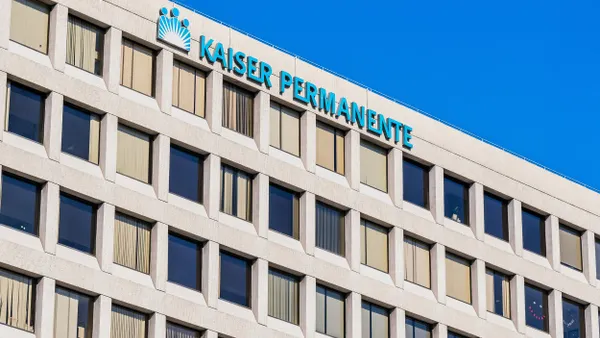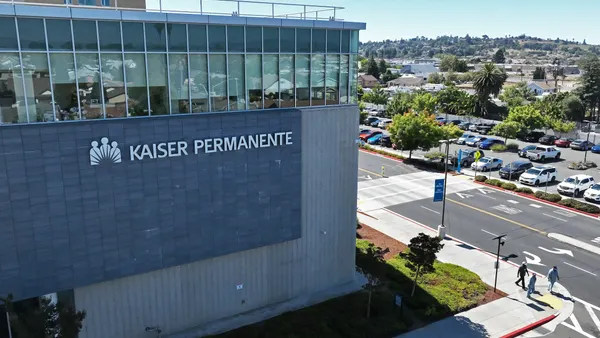Dive Brief:
- Alexian Brothers Health System and Adventist Midwest Health are forming a nine-hospital system in the Chicago area, the second largest network in the state, the companies said June 18. Alexian has four hospitals in northwest suburbs; Adventist has five hospitals in west and southwest suburbs.
- The two health systems signed a letter of intent to form an as-yet-unnamed joint operating company to oversee the nine hospitals. However, because both are parts of national health-care organizations with different religious identities, the agreement isn't for a full merger.
- Under the agreement, the joint company would have its own governing board and combine corporate operations of the smaller systems. Alexian CEO Mark Frey would stay as top executive, with Adventist CEO David Crane as executive vice president. The two systems would keep separate ownership of assets and separate finances; the operating company would handle long-term planning and strategy system-wide and could issue debt upon approval from the parents.
- The deal is expected to be finalized by early fall, subject to regulatory approval.
Dive Insight:
Healthcare delivery is local. Adventist CEO Crane said both systems have "far-flung" parent organizations, but "scale is required" to care well for patients when hospitals are located in a large city such as Chicago. The companies anticipate a more efficiently run corporate structure, IT savings and better ability to form new healthcare delivery models. Adventist became part of Alexian's Medicare ACO in 2013 and both systems have similar contracts with insurers.
According to the Chicago Tribune, the Alexian/Adventist alliance is coming "amid a wave of hospital consolidation" in the Chicago area fueled by the Affordable Care Act. Alexian CEO Frey said working with Adventist on the Medicare ACO "confirmed what we already knew, that these organizations have a lot in common, our teams work well together and it’s just a good fit.”
In fact, Adventist CEO Crane said the new agreement is anticipated as the first of "several steps to better align the Chicagoland market." Both CEOs said the combined market power of the two systems would make it more attractive as a partner for other hospitals in Chicago's affluent western suburbs.













